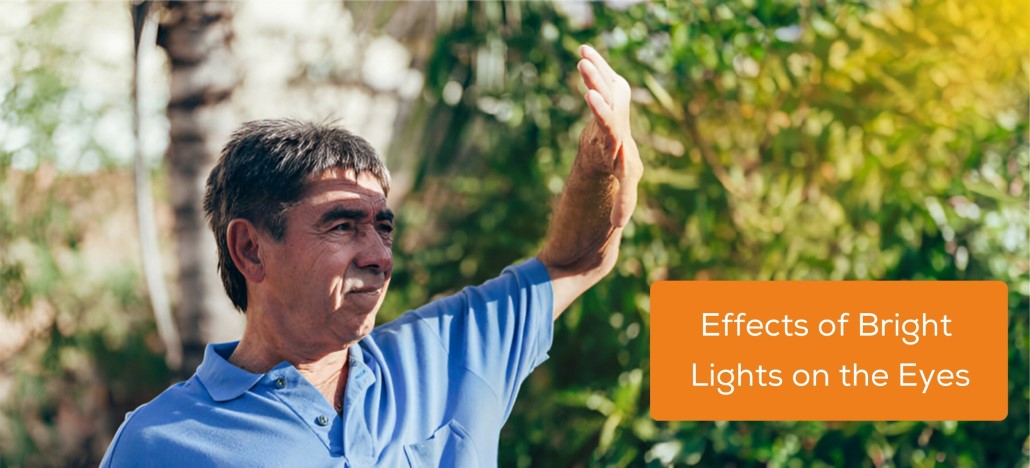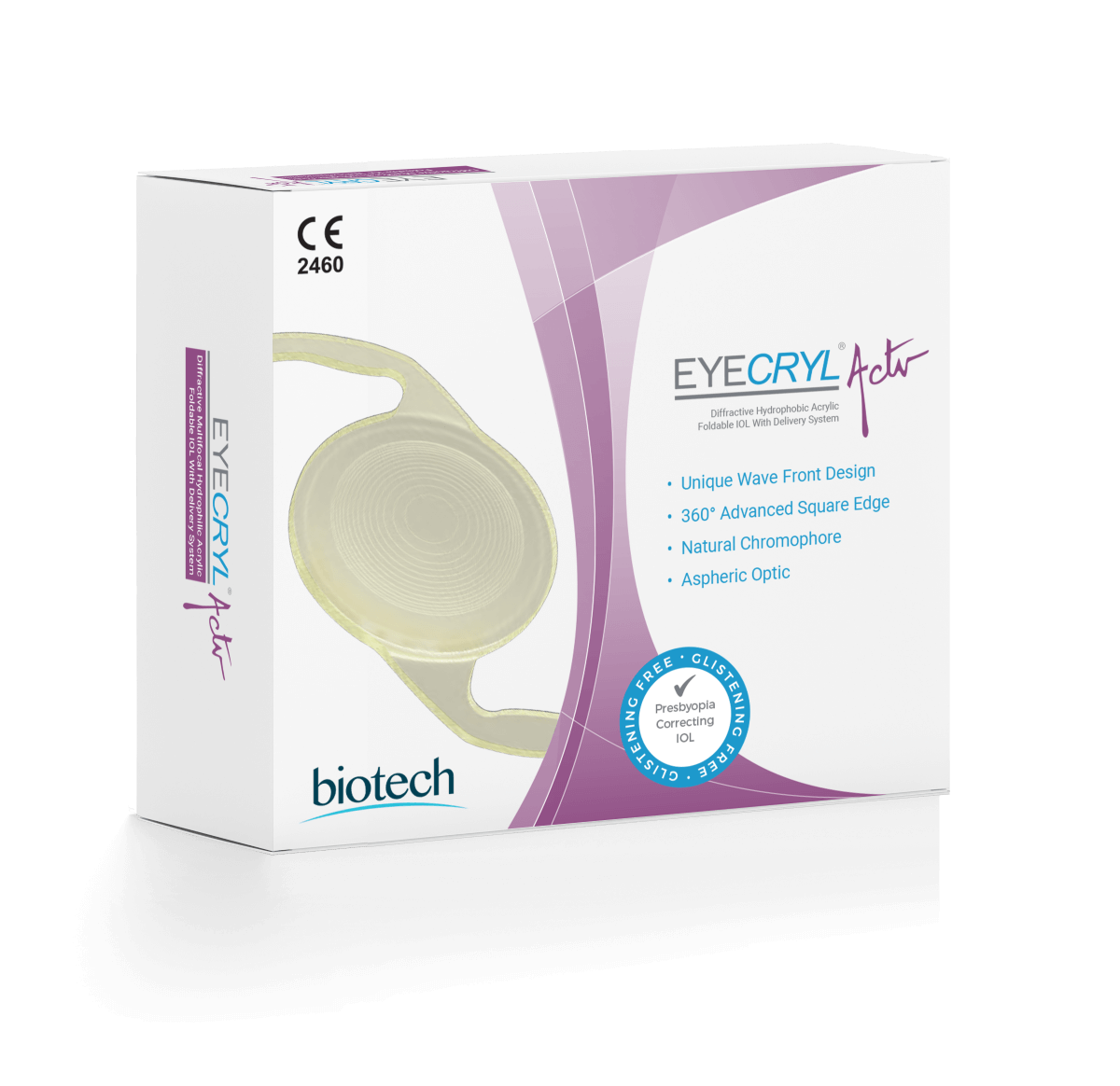
What are The Effects of Bright Lights on The Eyes?
Bright lights can significantly impact the eyes, leading to discomfort and potential damage over time. Exposure to bright light often results in eye strain, as the eyes work harder to process the intense illumination, causing fatigue and discomfort. The visible light spectrum, particularly blue light from digital screens and LED lighting, is known to cause eye strain and disrupt circadian rhythms, which regulate sleep-wake cycles and other physiological processes.
Long-term exposure to bright lights can contribute to serious conditions such as macular degeneration, affecting the central part of the retina and leading to gradual vision loss. Additionally, bright lights can exacerbate dry eyes, as individuals tend to blink less frequently when exposed to intense light, reducing lubrication and causing irritation.
Prolonged exposure to UV light without adequate protection can damage the cornea and increase the risk of cataracts, where the lens of the eye becomes cloudy, impairing vision. Overall, the effects of bright lights on the eyes highlight the importance of protective measures, such as using blue light filters, wearing UV-protection sunglasses, and maintaining proper eye lubrication.
What are the Dangers of Looking at Bright Light?
Looking at bright light poses several significant dangers to eye health, especially with prolonged exposure. One primary risk is eye strain, which occurs when the eyes are subjected to intense illumination for extended periods, leading to discomfort, headaches, and difficulty focusing. Long-term exposure to bright lights, particularly those emitting blue light, can disrupt circadian rhythms, affecting sleep patterns and overall health. This disruption is concerning given the prevalence of digital screens, which emit high levels of blue light.
Additionally, exposure to bright light can accelerate macular degeneration, a condition affecting the retina that leads to loss of central vision. UV light exposure without proper protection can damage the cornea and lens, increasing the risk of cataracts and other serious eye conditions. Bright lights can also exacerbate dry eyes, as individuals tend to blink less frequently, reducing eye lubrication and causing irritation. Furthermore, prolonged exposure to bright light can increase sensitivity to light, known as photophobia, and cause photochemical damage to the retina, potentially leading to permanent vision loss.
Do Bright Lights Cause Eye Damage?
Yes, bright lights can cause significant eye damage, particularly with prolonged exposure. One immediate effect is eye strain, which leads to headaches, discomfort, and difficulty focusing. Long-term exposure to bright lights, especially those emitting blue light from digital screens, can disrupt circadian rhythms, affecting sleep patterns and overall well-being. Prolonged exposure can also accelerate macular degeneration, affecting the retina and leading to vision loss. UV light exposure without proper protection can damage the cornea and lens, increasing the risk of cataracts. Additionally, bright lights can exacerbate dry eyes, as reduced blinking during screen time decreases eye lubrication, causing irritation. Continuous exposure can also increase sensitivity to light (photophobia) and cause photochemical damage to the retina, potentially leading to permanent vision loss.
What Should You Do to Protect Your Eyes from Bright Light?
To protect your eyes from bright light, it’s essential to take several proactive measures. First, wear sunglasses with adequate UV protection to block harmful UV light and reduce the risk of cataracts and other eye conditions.
Use blue light filters on digital devices to mitigate the harmful effects of blue light exposure, which can disrupt circadian rhythms and cause eye strain. Practicing the 20-20-20 rule—taking a 20-second break every 20 minutes to look at something 20 feet away—can help reduce eye strain from prolonged screen use.
Using artificial tears or lubricating eye drops can alleviate dry eyes, a common consequence of exposure to bright lights, by maintaining moisture on the eye’s surface. Ensuring proper lighting in your workspace and avoiding excessive brightness can also minimize eye strain.
Additionally, wearing hats with wide brims and considering wraparound sunglasses for outdoor activities can provide extra protection by shading your eyes from direct sunlight. Regular check-ups with an eye doctor are crucial for monitoring eye health and addressing potential issues early on.
Can Looking at Bright Light Cause Permanent Damage?
Yes, looking at bright light can cause permanent damage to the eyes, especially with long-term exposure. Prolonged exposure to blue light from digital screens and LED lighting can accelerate the onset of macular degeneration, a condition that affects the central part of the retina and leads to permanent vision loss. UV light exposure without proper UV protection can damage the cornea and lens, increasing the risk of cataracts, which cloud the lens and impair vision.
Additionally, continuous exposure to bright light can cause photochemical damage to the retina, potentially resulting in irreversible vision loss. Bright lights can also exacerbate conditions like dry eyes and photophobia, where individuals become overly sensitive to light, causing chronic discomfort. To protect against these risks, it is crucial to use blue light filters, wear UV-protection sunglasses, and maintain regular check-ups with an eye doctor to monitor and address any emerging issues early.
Why Does Eye Blurring Happen After Looking at Bright Light?
Eye blurring after looking at bright light occurs due to several factors. Exposure to bright light, especially blue light from digital screens, can cause eye strain, leading to temporary difficulty in focusing. This strain happens because the eyes work harder to process the intense illumination, which can result in visual fatigue and blurriness. Additionally, bright lights can disrupt the tear film on the eye’s surface, causing dry eyes.
When the tear film evaporates quickly or isn’t replenished due to reduced blinking, it leads to irritation and blurred vision. UV light exposure can also cause inflammation of the cornea, known as photokeratitis, resulting in temporary blurriness, pain, and redness. Long-term exposure to visible light can exacerbate these issues, making the eyes more sensitive to light and increasing the risk of permanent damage. To mitigate these effects, it’s essential to take breaks from screens, use blue light filters, and ensure proper eye lubrication with artificial tears or eye drops. Wearing sunglasses with UV protection can further help prevent blurriness and protect overall eye health. Regular visits to an eye doctor can also help monitor and address any ongoing issues.
Our Bestsellers
Categories
Company
Media
Follow Us
© Copyright Biotech /Terms Of Use - Privacy Policy
Version 2_CT_1212222



